
The American University of Beirut is a private, non-sectarian, and independent university chartered in New York with its campus in Beirut, Lebanon. AUB is governed by a private, autonomous board of trustees and offers programs leading to bachelor's, master's, MD, and PhD degrees.

Wasfi Tal was a Jordanian politician, statesman and military officer. He served as the 15th Prime Minister of Jordan for three separate terms, 1962–63, 1965–67 and 1970 until his assassination in 1971.
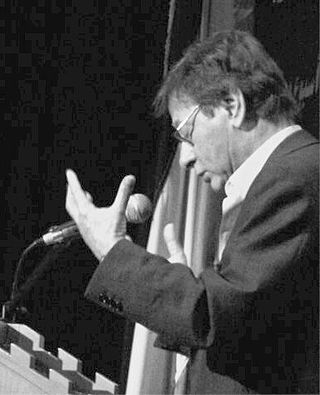
Mahmoud Darwish was a Palestinian poet and author who was regarded as Palestine's national poet.
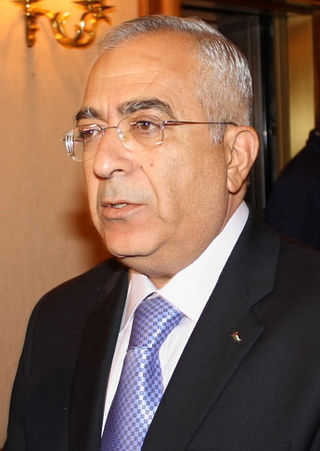
Salam Fayyad is a Palestinian politician and economist who served as the prime minister of the Palestinian Authority and the finance minister. He was Finance Minister from June 2002 to November 2005 and from March 2007 to May 2012. Fayyad was prime minister between June 2007 and June 2013.
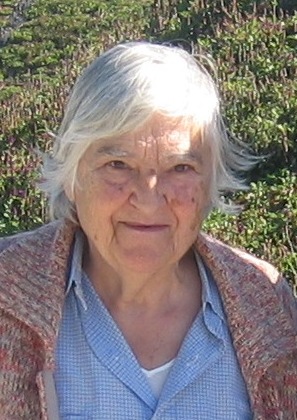
Etel Adnan was a Lebanese-American poet, essayist, and visual artist. In 2003, Adnan was named "arguably the most celebrated and accomplished Arab American author writing today" by the academic journal MELUS: Multi-Ethnic Literature of the United States.
Emily Jacir is a Palestinian artist and filmmaker.

Annemarie Jacir is a Palestinian filmmaker, writer, and producer.

Rashida Harbi Tlaib is an American lawyer and politician serving as a U.S. representative from Michigan since 2019, representing the state's 12th congressional district since 2023. A member of the Democratic Party, she is the first Palestinian American woman to serve in Congress and one of the first two Muslim women elected to Congress.
Nawaf Salam is a Lebanese diplomat, jurist, and academic. He currently serves as the 27th president of the International Court of Justice. He was elected on 9 November 2017 as judge on the International Court of Justice for the 2018–2027 term, having received a concurrent majority of votes in the United Nations General Assembly and Security Council. He served as Lebanon's Ambassador and Permanent Representative to the United Nations in New York from 2007 to 2017, during which period he held the positions of President of the Security Council and Vice President of the General Assembly. He was elected as president of the International Court of Justice on 6 February 2024. Salam is the second Arab to be elected as president and the first Lebanese judge.
Tarif Khalidi is a Palestinian historian who now holds the Shaykh Zayid Chair in Islamic and Arabic Studies at the American University of Beirut in Lebanon.
Hind Shoufani is a poet, director, and producer.

Anbara Salam Khalidi was a Lebanese feminist, translator and author, who significantly contributed to the emancipation of Arab women.
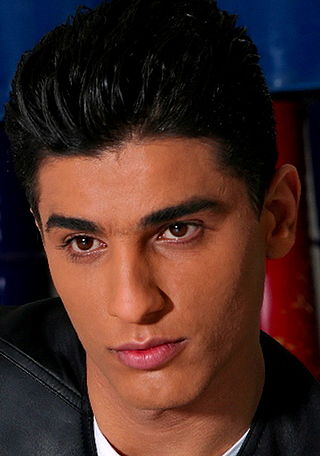
Mohammad Jaber Abdul Rahman Assaf is a Palestinian pop singer well known for being the winner of the second season of Arab Idol, broadcast by the MBC network. His victory received worldwide coverage from the media and was welcomed with joy by Palestinians and the rest of the Arab world. In 2013, Assaf was named a goodwill ambassador for peace by The United Nations Relief and Works Agency for Palestine Refugees (UNRWA). He was also named ambassador of culture and arts by the Palestinian government and was offered a position with "diplomatic standing" by Palestinian President Mahmoud Abbas. Assaf's story is the basis of the 2015 film The Idol, directed by Hany Abu-Assad. After Arab Idol, Assaf has gone on to enjoy huge popularity in the Arab World and the Arab diaspora and has released two albums and a great number of singles and collaborations. Most of his music is sung in the Iraqi and Gulf dialects.
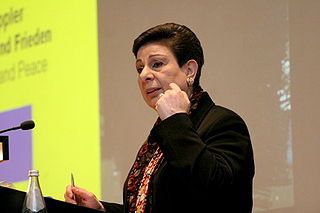
Hanan Daoud Mikhael Ashrawi is a Palestinian politician, activist, and scholar.
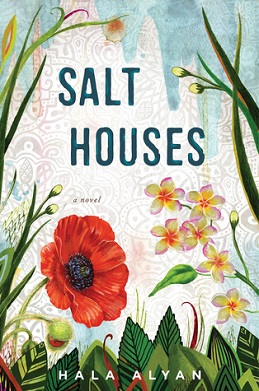
Salt Houses is a 2017 historical fiction novel by Palestinian-American author Hala Alyan.

Darine Hotait is an American film director and writer of Lebanese descent. She is best known for her short films, I Say Dust, Like Salt, Tallahassee, and Sherman.
Maya Abu Al-Hayat (1980) is a Palestinian novelist, poet, storyteller, and translator, born in Beirut. She has published three novels and three collections of poetry. Her books have gained worldwide recognition, and some of her stories have been translated into different languages. Abu Al-Hayat also worked as an actress and ran the Palestine Writing Workshop. Abu Al-Hayat played a prominent role in children's literature, writing and presenting television programs for children, including "Iftah Ya Simsim," and was distinguished by her writing of children's stories.
The Arsonists' City is Hala Alyan's second novel, published by HarperCollins in 2020. The book structure follows the Nasr family into the past and the present repeatedly to unfold the intergenerational trauma caused by war and secrets passed down from parents to children.
Plestia Alaqad is a Palestinian journalist and poet. She gained international attention for her daily coverage of the Israel–Hamas war, which began on 7 October 2023, by way of her social media accounts.
Palestinians in the United Kingdom, commonly called British Palestinians, are people of Palestinian origin born or residing in the United Kingdom.












